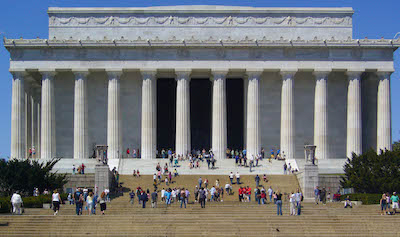Public ideas
How we came to be called The Commonwealth of Australia?
If you’re interested in constitutional matters, explained by an expert using clear language, it’s worth a visit to Anne Twomey’s Constitutional Clarion, where she has a number of essays on constitutional matters – everything from proposals for four-year parliamentary terms through to the question of whether South Australia can sever its ties with the British monarchy.
In this week’s roundup there is a large section on how we relate to government – the custodians of our common wealth. Twomey has a 17-minute session on the way Australia came to be called the “Commonwealth”, a term with a particularly republican and even a socialist connotation. In the 1890s conventions Deakin’s support of the name, with a little support from closet republicans, won the day, even though Queen Victoria was unamused.
Members of the Australian Republican Movement should take note. We are witnessing, in America, the destruction of a republic. When we eventually rid ourselves of the anachronism of a constitutional attachment to a distant and foreign monarch, we would do well to retain the name Commonwealth of Australia.
How we got here and where we’re headed
Somewhat shorter than Manning Clark’s six volume Australian history is James Walter’s Conversation essay The best of both worlds? How Australia’s unique democracy evolved. The title suggests his work is celebratory, but he deals with the uglier parts – disregard for the land’s original owners and the way White Australia played a role in bringing the federation together.
His general theme is about the ways liberalism made its way into our political ideas through various channels. And how our “talent for bureaucracy” helped us build democratizing institutions, such as compulsory voting , a national election commission, and preferential voting.
Over that long period we have generally practised good economic management, bringing prosperity to all, but our 30-year embrace of neoliberalism has run its course and is now failing us:
For 30 years, it produced the prosperity reformers had promised. But the rewards were distributed unevenly, with riches accruing to an ever-smaller proportion of the population. Individual precarity was by imputation a failure of effort rather than of market failure, structural disadvantage or the “creative destruction” expected of unbridled capitalism.
Where America is headed

What would Lincoln have thought?
There’s a term for what Trump and Musk are doing, writes Anne Applebaum in The Atlantic.
It’s called regime change. That’s not a change of government – Democrat to Republican, Coalition to Labor – within a democratic system. It’s a change in the entire system, and the first step is the destruction of the civil-service ethos. That’s what DOGE is all about: it’s far more extensive than the usual right-wing predilection for cutting government spending. Applebaum is not sure what will replace the civil-service ethos – a religious state perhaps – but it won’t be loyalty to the Constitution or adherence to the rule of law.
“The new system, whatever its ideology, will in practice represent a return to patronage”, she writes. But to get there “the administration will first have to break the morale of the people who believed in the old civil-service ethos”.
She believes they will succeed. There will be some heroic resistance, but over time, and with enough pressure, almost everyone will yield to the new norm. She describes those sources of pressure, ranging from gentle persuasion through to outright threats and tests of loyalty. Already candidates for national security posts are being asked whether they accept Trump’s claim to have won the 2020 election.
You may find that the article is firewalled – The Atlantic seems to be inconsistent in its firewall policies. But you may find it in a library, or a well-stocked newsstand. And you may consider subscribing on-line or in print: it’s a voice of reason from that troubled land.
How we used to live – an ongoing cost-of-living crisis
We have a cost-of-living crisis, as many journalists keep reminding us. But imagine what it would be like living in a house with no reliable water supply, that becomes so bitterly cold in winter that all activity has to be compressed into a tiny room with an open fire.
That’s how Thomas Jefferson, one of the richest people in America, lived. Charles Mann’s essay on The New Atlantis – We live like royalty and don’t know it – recounts how at times the ink in Jefferson’s pen froze, rendering him incommunicado. “His life was closer to the lives of people in the Iron Age than it was to ours”, writes Mann.
It’s a reminder of the complex life-support systems that make our lives not just tolerable, but luxurious by the standards of earlier times.
This is the first of four essays by Mann on “how the system works” – some of those sub-systems are in the private sector, some are in the public sector, but they are all interrelated, and we take no notice of how well they work until they don’t.